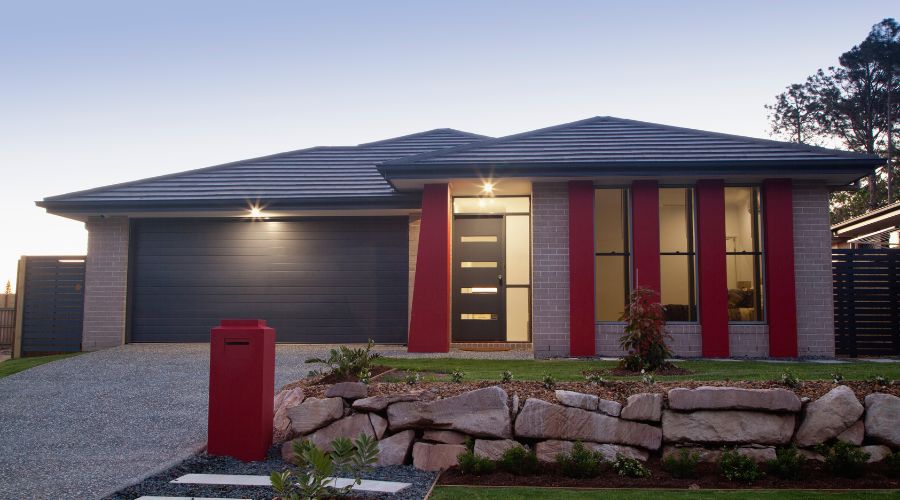There seems to be a lot of confusion about whether or not you have to sell your home when moving into aged care.
So, what are the rules?
Let’s set the record straight once and for all.
In This Article
Do I Have to Sell My Home for Aged Care?
There is no requirement to sell your home for aged care. The decision to keep or sell your home is always yours. Moving into aged care does not change that.
However, like anything, there are pros and cons of selling your home when it comes to aged care.
Benefits of Selling the Family Home to Pay for Aged Care
Listed below are some of the benefits of selling the family home to pay for aged care:
- Provides access to funds that can be used for other purposes
- Reduces any stresses involved in managing a property
- No need to worry about the hassle and potential cost of preparing the home for rent
- Reduces the costs associated with maintaining a property (rates, taxes, utilities, etc.)
- Can increase Age Pension payments, depending on how the proceeds are allocated
- Can reduce aged care costs, depending on your situation
- Can simplify decisions to be made when distributing assets to multiple beneficiaries upon your death
While there are many benefits associated with selling the family home to pay for care, there are also some downsides.
Downsides of Selling the Family Home to Pay for Aged Care
The downsides of selling the family home to pay for aged care include:
- Incurring the costs associated with selling the home (agent fees, etc.) and potential taxes
- Any costs associated with fixing-up the home to prepare it for sale
- The full proceeds could become assessable for Age Pension purposes, depending on how they are allocated
- The full proceeds will become assessable for aged care fee purposes
- You will lose any sentimental value the home provides
- Missing out on property investment returns which could be higher than other options
After you’ve weighed up the pros and cons of selling the home, the next step is to figure out whether you should sell it or not.
Related Article: How To Avoid Selling Your Home to Pay For Aged Care in Australia
Should I Sell the Family Home to Pay For Aged Care?
Deciding whether to keep or sell the family home is not always just a financial decision, it can be an emotional one too. Particularly if the house has a long history in the family.
Here are five things to consider when deciding to sell the home or not.
- Family Member Remaining in the Home
- Aged Care Affordability
- Aged Care Strategies
- Investment Returns
- Sentimental Reasons
Let’s take a look at each one individually.
1. Family Member Remaining in the Home
If there is a spouse, child or relative who is living in your family home and will continue to live in it once you move into aged care, then the decision to keep the home may have already been made.
If this is your wish, then you should not feel pressured to sell the home, even if you do not have any other funds available for aged care costs.
In fact, there can be great financial benefits by retaining the home if a protected person, such as a spouse or carer, will remain in the home.
These financial benefits may include:
- Being assessed as low-means (eliminating the need to pay a RAD)
- Ensuring the home is not assessed for means-tested care fee purposes
2. Aged Care Affordability
If you are not assessed as a low-means aged care resident but do have somewhat limited means, you may find it necessary to sell the family home in order to cover aged care costs.
The need to sell your home may be immediate, or it could be necessary after a year or two, depending on how long your other investments last.
When factoring in the timing of the sale, you should be thinking about how long the overall process will take and when the actual proceeds will be received, so as not to leave yourself short (or stressed!).
3. Aged Care Strategy
As alluded to earlier, there are a number of aged care financial planning strategies – some of which involve selling the home and others in keeping it.
The point is that, if you are making decisions based on financial outcomes only, you should be comparing a number of options before making a decision, such as:
- Keeping the home and not renting it; versus
- Keeping the home and renting it; versus
- Selling the home
By comparing these options, you can better decide what suits your situation.
Pro Tip: Don’t just look at the financial position over the initial 12-months. You should be looking at the outcome over at least 5 years, because assessment and fees can change drastically year on year, especially from year 3 onwards.
4. Investment Return
Investment returns is another consideration to take into account when deciding whether or not to sell your home.
Ask yourself these questions:
- What level of rental income would you expect to achieve from the home?
- What annual rental costs would be incurred (advertising, agent costs, maintenance, etc)?
- What about other ongoing expenses (rates, utilities, taxes, etc.)?
- What average increase (or decrease) in value of the property do you think will be achieved over the coming years?
Then:
- How do those returns (after fees, costs and taxes) compare to the financial benefit of selling the home and contributing more towards the RAD, or investing in other assets?
5. Sentimental Reasons
And, finally, keeping a home for sentimental reasons should not be discounted.
If it doesn’t place too much financial pressure on your situation and is important to you and your family, then this could be the thing that sways you to keep the home.
Either way, the most important thing is to ensure your income and assets are structured in a way that provides financial security and stability while in aged care, so that your loved-one’s aren’t burdened with covering the costs if you were to run out of money.
At Core Value Aged Care Advice we will help you navigate the complexities of aged care and find the best financial solutions for your family. If you have any questions or concerns regarding your situation, please call us on 1300 944 011 or contact us here to speak to an expert aged care adviser.
Frequently Asked Questions
Listed below are some frequently asked questions around selling the home to pay for aged care.
Is the Family Home Counted as an Asset for Aged Care?
The family home is only counted as an asset for aged care fee purposes if a protected person will not continue to live in the home.
However, even if it is counted because a protected person does not live in the home, then only an amount up to the home exemption cap of $193,219.20 (Sept 2023) will be counted.
If a protected person will continue to live in the home, then the home will not count as an asset for aged care.
How Can I Avoid Paying a RAD in Aged Care?
There are two ways to avoid paying a RAD in aged care. The first way is if you are assessed as a low-means resident, in which case you will pay a Refundable Accommodation Contribution (RAC) instead.
The other way to avoid paying a RAD is to pay a Daily Accommodation Payment (DAP) instead. A DAP is basically akin to paying an interest-only loan repayment on the unpaid RAD amount.
What Happens When You Run Out of Money in a Nursing Home in Australia
If you run out of money while in a nursing home in Australia, the responsibility of covering aged care costs may fall on a spouse or child if they signed-off as guarantor on the aged care contract.
Alternatively, you may be able to claim financial hardship assistance if for reasons beyond your control you can no longer afford aged care costs.
How To Protect Your Parents’ Assets From Nursing Homes in Australia
There is not necessarily a requirement to protect your parents’ assets from nursing homes, because a nursing home generally has no right to claim on your assets.
However, what you should be mindful of is taking financial advice from nursing home staff. Not only are nursing home staff legally unable to provide advice, but the advice is unlikely to be suitable and there may even be a bias towards benefiting the aged care facility (i.e. pressured to sell the home to contribute more to the RAD). Always seek professional financial advice from a licensed financial adviser who specialises in aged care.
You might also like:
- Renting Home To Pay For Aged Care
- Aged Care Family Home Exemption: All the Rules Explained
- Is the Family Home Counted as an Asset for Aged Care?

Hi, I hope you found this article useful.
If you wish to discuss your situation and what strategies may be of benefit please contact us here
Thanks - Shane


